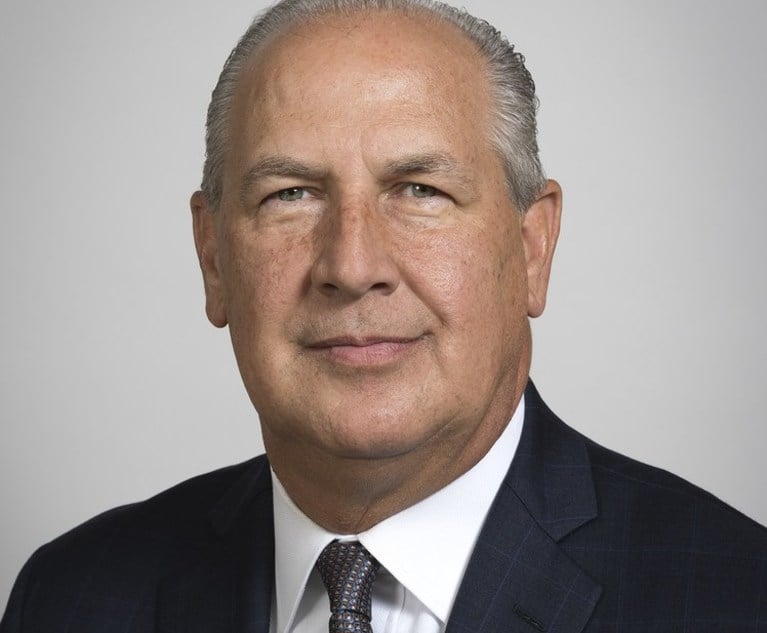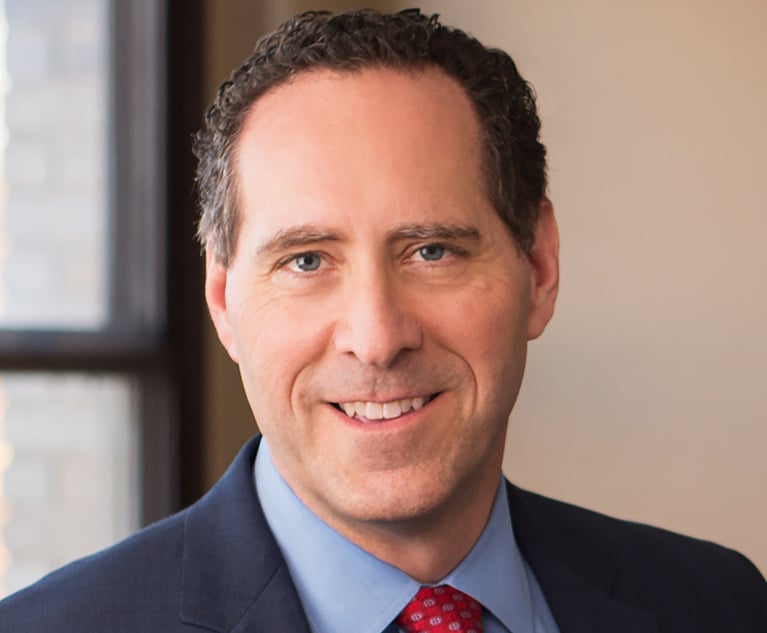I've Got the Power: Shifting Dynamics See Talent Replacing Clients as Driving Force
The legal industry is at a tipping point. Talent holds the cards and will for some time as law firms sort out how best to reimagine their structure, recruitment efforts, retention and professional development.
May 19, 2022 at 11:26 AM
9 minute read
 Marcie Borgal Shunk
Marcie Borgal Shunk
Smart Strategy
- A Cautionary Tale
The year is 2002. Corporate clients are not happy. A new market research report shows dismal levels of client satisfaction with law firms. Key findings highlight law firms' lack of responsiveness, failure to keep up with clients' changing needs and poor value. The rising adoption of e-billing gives clients greater access to data and quickly they, led by insurance companies, begin to wield newfound knowledge to usurp power from law firms. Clients start calling the shots.
This shift in power dynamics, compounded by a financial crisis in 2009, lays bare those firms unprepared or unwilling to adapt. Dissolutions and mergers run rampant. Law firms slow to make the transition find themselves underwater, struggling to maintain client relationships and unable to keep the ship afloat. The giant wave, propelled by clients shifting work to firms they deem more responsive to their needs and more attuned to delivering value, capsizes firm after firm.
Fast forward 20 years. An entire cottage industry has blossomed around elevating and expanding client relationships. Client feedback programs, client service standards, industry teams and key client programs are increasingly common. Business development skills and training are essential to the budding lawyer and considered, at long last, critical to the promotion and long-term success of equity partners. Client service is both a differentiator and competitive advantage. And … a new entrant to the power game promises to shift the dynamics yet again.
- Talent Reigns Supreme
The Georgetown/Thomson Reuters Institute's 2022 State of the Legal Market, reports nearly one in four associates left their firms in 2021, a notable uptick from 18.9% in 2019. Lateral moves are up too—a whopping 111% increase across all levels according NALP. The war for talent is in full force and many law firms are responding in the best way they know how—to throw money at the problem. If we learned nothing from the last major shift in the industry's power dynamics, it was that money isn't enough in the long-run. Slashing rates to deliver greater value to clients is a short-lived approach that puts survival at risk. So too is hiking compensation without investing in more lasting change.
This content has been archived. It is available through our partners, LexisNexis® and Bloomberg Law.
To view this content, please continue to their sites.
Not a Lexis Subscriber?
Subscribe Now
Not a Bloomberg Law Subscriber?
Subscribe Now
NOT FOR REPRINT
© 2025 ALM Global, LLC, All Rights Reserved. Request academic re-use from www.copyright.com. All other uses, submit a request to [email protected]. For more information visit Asset & Logo Licensing.
You Might Like
View All
AI and Social Media Fakes: Are You Protecting Your Brand?

Trump RTO Mandates Won’t Disrupt Big Law Policies—But Client Expectations Might
6 minute read
Montgomery McCracken Touts 'Record' Financial Performance Despite Shrinking Head Count
6 minute read
Cohen Seglias Leader Discusses Growing From Construction Practice into Full-Service Law Firm
Law Firms Mentioned
Trending Stories
- 1Second DCA Greenlights USF Class Certification on COVID-19 College Tuition Refunds
- 235 Years After CT's Affordable Housing Act, Progress Remains a Struggle
- 3Bankruptcy Judge Clears Path for Recovery in High-Profile Crypto Failure
- 4Reality TV Couple and Pacific Palisades Neighbors Sue City of Los Angeles Over Loss of Homes to Fire
- 5Colgate Faces Class Actions Over ‘Deceptive Marketing’ of Children’s Toothpaste
Who Got The Work
J. Brugh Lower of Gibbons has entered an appearance for industrial equipment supplier Devco Corporation in a pending trademark infringement lawsuit. The suit, accusing the defendant of selling knock-off Graco products, was filed Dec. 18 in New Jersey District Court by Rivkin Radler on behalf of Graco Inc. and Graco Minnesota. The case, assigned to U.S. District Judge Zahid N. Quraishi, is 3:24-cv-11294, Graco Inc. et al v. Devco Corporation.
Who Got The Work
Rebecca Maller-Stein and Kent A. Yalowitz of Arnold & Porter Kaye Scholer have entered their appearances for Hanaco Venture Capital and its executives, Lior Prosor and David Frankel, in a pending securities lawsuit. The action, filed on Dec. 24 in New York Southern District Court by Zell, Aron & Co. on behalf of Goldeneye Advisors, accuses the defendants of negligently and fraudulently managing the plaintiff's $1 million investment. The case, assigned to U.S. District Judge Vernon S. Broderick, is 1:24-cv-09918, Goldeneye Advisors, LLC v. Hanaco Venture Capital, Ltd. et al.
Who Got The Work
Attorneys from A&O Shearman has stepped in as defense counsel for Toronto-Dominion Bank and other defendants in a pending securities class action. The suit, filed Dec. 11 in New York Southern District Court by Bleichmar Fonti & Auld, accuses the defendants of concealing the bank's 'pervasive' deficiencies in regards to its compliance with the Bank Secrecy Act and the quality of its anti-money laundering controls. The case, assigned to U.S. District Judge Arun Subramanian, is 1:24-cv-09445, Gonzalez v. The Toronto-Dominion Bank et al.
Who Got The Work
Crown Castle International, a Pennsylvania company providing shared communications infrastructure, has turned to Luke D. Wolf of Gordon Rees Scully Mansukhani to fend off a pending breach-of-contract lawsuit. The court action, filed Nov. 25 in Michigan Eastern District Court by Hooper Hathaway PC on behalf of The Town Residences LLC, accuses Crown Castle of failing to transfer approximately $30,000 in utility payments from T-Mobile in breach of a roof-top lease and assignment agreement. The case, assigned to U.S. District Judge Susan K. Declercq, is 2:24-cv-13131, The Town Residences LLC v. T-Mobile US, Inc. et al.
Who Got The Work
Wilfred P. Coronato and Daniel M. Schwartz of McCarter & English have stepped in as defense counsel to Electrolux Home Products Inc. in a pending product liability lawsuit. The court action, filed Nov. 26 in New York Eastern District Court by Poulos Lopiccolo PC and Nagel Rice LLP on behalf of David Stern, alleges that the defendant's refrigerators’ drawers and shelving repeatedly break and fall apart within months after purchase. The case, assigned to U.S. District Judge Joan M. Azrack, is 2:24-cv-08204, Stern v. Electrolux Home Products, Inc.
Featured Firms
Law Offices of Gary Martin Hays & Associates, P.C.
(470) 294-1674
Law Offices of Mark E. Salomone
(857) 444-6468
Smith & Hassler
(713) 739-1250





